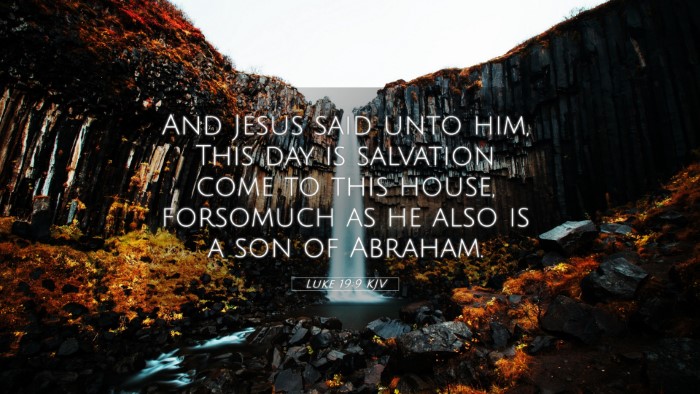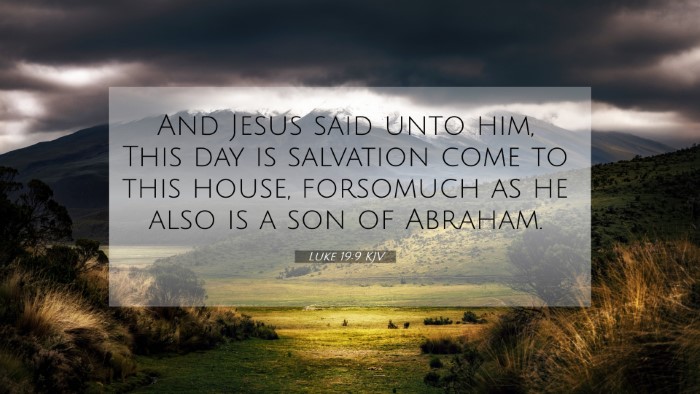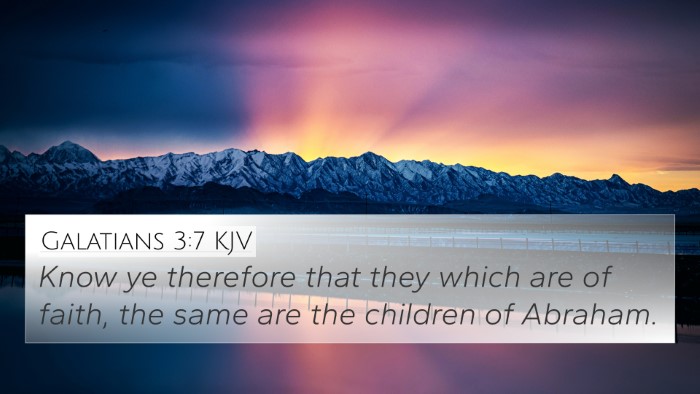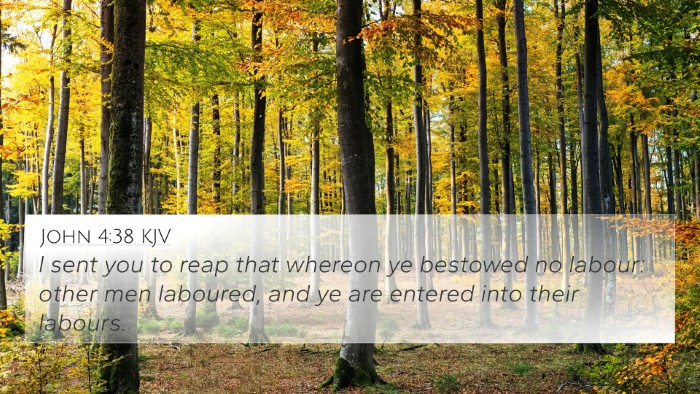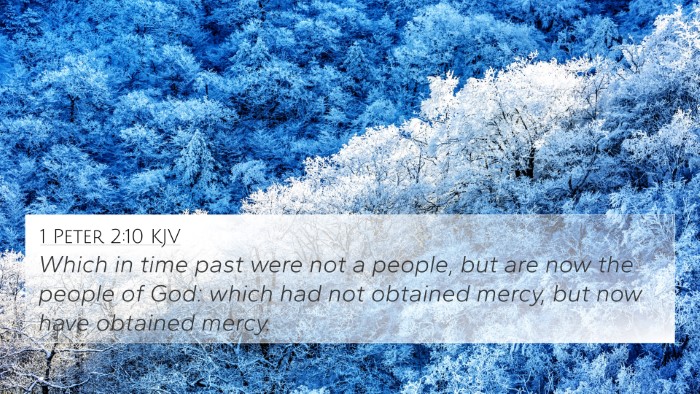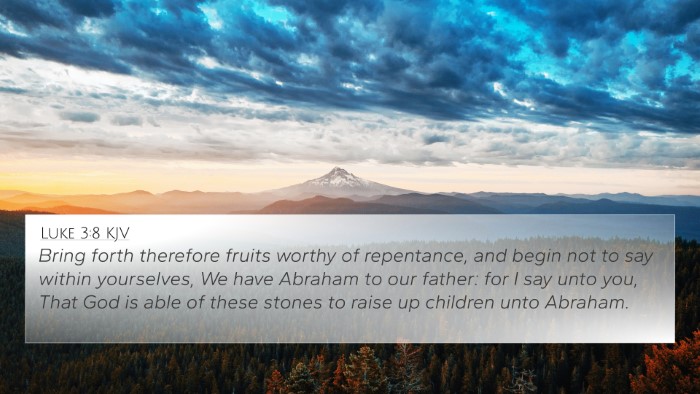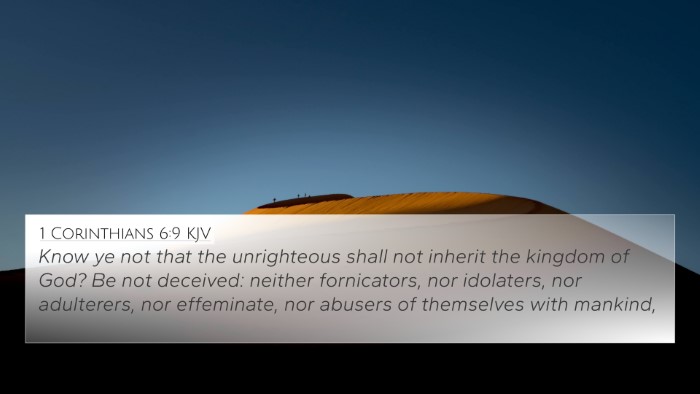Understanding Luke 19:9
Verse: "And Jesus said unto him, This day is salvation come to this house, forsomuch as he also is a son of Abraham." (Luke 19:9)
Summary of the Verse
The verse occurs in the context of the story of Zacchaeus, a tax collector who climbs a fig tree to see Jesus as he passes through Jericho. This encounter illustrates the transformative power of Jesus' presence and the nature of salvation, which is made accessible to all, including those marginalized by society.
Interpretation from Commentaries
Matthew Henry’s Commentary
Henry emphasizes that Jesus recognizes Zacchaeus's faith and his desire to see Him. The statement of salvation coming to his house signifies not just physical deliverance but spiritual regeneration. Jesus' declaration underscores that everyone, regardless of their past, can find redemption in Him.
Albert Barnes’ Notes
Barnes elaborates on the significance of Zacchaeus being called a "son of Abraham." This reflects God's covenant with Abraham and indicates that salvation through faith extends beyond ethnic lineage; it requires humility and repentance. Barnes notes that this term affirms that Zacchaeus, despite his occupation, was a part of God's chosen people by faith.
Adam Clarke’s Commentary
Clarke highlights the immediate impact of Jesus' words, which transformed Zacchaeus's life. The phrase "This day" points to the immediacy of salvation available through Jesus. Clarke also connects this story with the larger theme of Jesus' ministry, which consistently reaches out to the "lost" and marginalized.
Key Themes and Insights
- Salvation is Accessible: Zacchaeus's encounter illustrates that salvation is available to all, irrespective of status or past actions.
- Faith and Repentance: Zacchaeus's actions demonstrate a penitent heart, key to receiving Jesus' salvation.
- Divine Recognition: Jesus sees beyond societal labels and recognizes a true seeker.
- Immediate Transformation: The moment of salvation brings about an immediate change in Zacchaeus's life.
- God’s Covenant: The reference to Abraham ties Zacchaeus to God’s longstanding promise to His people.
Cross References
- Genesis 15:6: "And he believed in the Lord; and he counted it to him for righteousness." - Links the idea of faith as central to salvation.
- Luke 15:7: "I say unto you, that likewise joy shall be in heaven over one sinner that repenteth..." - Highlights God's joy over a sinner's repentance.
- Matthew 11:28-30: "Come unto me, all ye that labour and are heavy laden, and I will give you rest." - Inviting the weary, akin to Zacchaeus's plight.
- Acts 2:38: "...Repent, and be baptized every one of you in the name of Jesus Christ..." - The call to repentance as a prerequisite for salvation.
- Romans 1:16: "For I am not ashamed of the gospel of Christ: for it is the power of God unto salvation to everyone that believeth..." - Emphasizing the universal invitation of the gospel.
- Ephesians 2:8-9: "For by grace are ye saved through faith; and that not of yourselves: it is the gift of God..." - Reinforcing salvation as a gift, not earned.
- Luke 18:10-14: "Two men went up into the temple to pray; the one a Pharisee, and the other a publican..." - A parallel demonstrating humility in seeking God.
- Matthew 9:13: "For I am not come to call the righteous, but sinners to repentance." - Jesus’ mission aligns with Zacchaeus's experience of grace.
- John 3:16: "For God so loved the world, that he gave his only begotten Son..." - The essence of God's love that leads to salvation.
- Romans 10:13: "For whosoever shall call upon the name of the Lord shall be saved." - Affirming that salvation is open to all who seek it.
Conclusion
Luke 19:9 encapsulates the core message of Christ’s mission on Earth: to seek and save the lost. This verse, through its rich narrative and profound implications, serves not only as a personal invitation but also as a theological foundation for understanding grace and redemption. As we explore connections between Bible verses, we illuminate the themes of faith, humility, and God's inclusive love, providing tools for deeper Bible study and comprehension.
Further Study Tools
- Utilizing a Bible concordance for finding cross-references related to salvation.
- Employing a cross-reference Bible study method to identify similar themes across scriptures.
- Exploring Bible cross-reference guides for detailed thematic studies.
- Using resources to discover Bible verses that relate to each other.
- Learning how to identify connections between Old and New Testament teachings.

